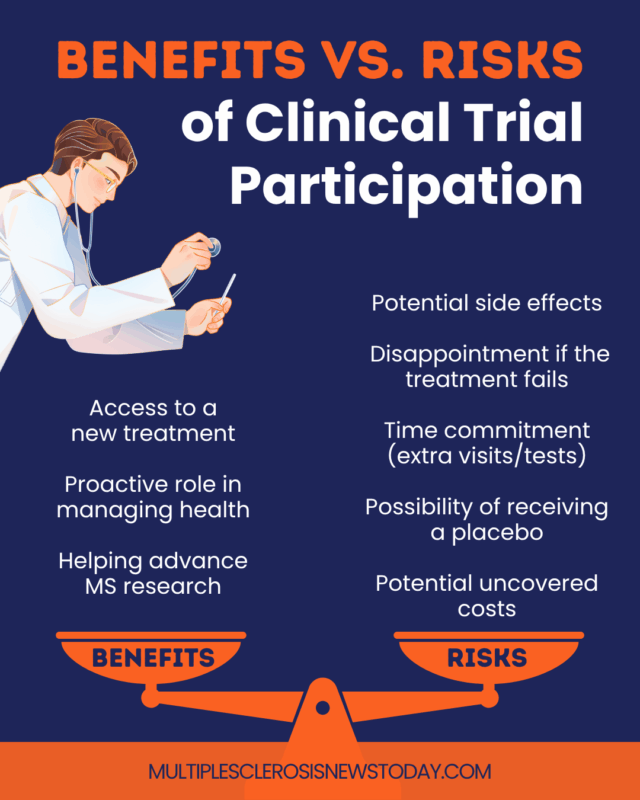A clinical trial testing TG Therapeutics‘ CD20 inhibitor Briumvi (ublituximab-xiiy) in children with relapsing forms of multiple sclerosis (MS) will begin enrolling participants within the next few months, the developer announced, also unveiling details of the study’s design. The upcoming Phase 2/3 trial (NCT07220252) will run…
Masitinib (formerly known as AB1010) is an oral therapy being investigated for progressive forms of multiple sclerosis (MS), including primary progressive MS (PPMS) and non-active secondary progressive MS (SPMS).
Lipoic acid is a powerful antioxidant available as an over-the-counter supplement that is currently being tested in progressive forms of MS. Taken as oral capsules, it is expected to slow MS progression by protecting cells from harmful oxidative molecules and reducing inflammation.
The U.S. Food and Drug Administration (FDA) has granted breakthrough therapy designation to privosegtor, an experimental treatment from Oculis that aims to protect the vision of people experiencing acute optic neuritis. This condition, which involves inflammation of the optic nerve, is a common and often debilitating symptom of…
The balance between two immune signaling molecules — CXCL13 and BAFF — may help identify the hard-to-treat inflammation in the brain and spinal cord that’s thought to be a major driver of disability progression in multiple sclerosis (MS), a study found. The findings may help identify which patients are…
Quantum Biopharma has completed dosing in two toxicology studies requested by the U.S. Food and Drug Administration (FDA) that aim to support the launch of clinical studies of Lucid-MS, an experimental treatment for multiple sclerosis (MS) that’s designed to slow myelin loss. The 180-day toxicity and toxicokinetic…
In people with progressive multiple sclerosis (MS), treatment with the antioxidant lipoic acid did not improve walking or lessen other symptoms, such as fatigue, but it did show signs of slowing brain atrophy, or the loss of brain tissue. According to the researchers, this suggests possible positive biological…
A clinical trial testing whether music therapy can make botulinum toxin injections for spasticity more tolerable for people with multiple sclerosis (MS) and other neurological conditions is enrolling participants at Clermont-Ferrand University Hospital in France. The study’s protocol was published in PLOS One, in a paper titled, “…
I wrote in the summer about changing the disease-modifying therapy (DMT) for my multiple sclerosis (MS). I’ve familiarized myself with the available DMTs, and I plan to ask my neurologist for her recommendation next week and then make a decision. As I’ve researched my options, I’ve become interested…
Privosegtor is a small molecule being developed to treat acute optic neuritis, a common symptom of MS that can lead to vision loss. It is administered via intravenous infusions, usually for a few days, alongside standard steroids.
 Fact-checked by
Fact-checked by 